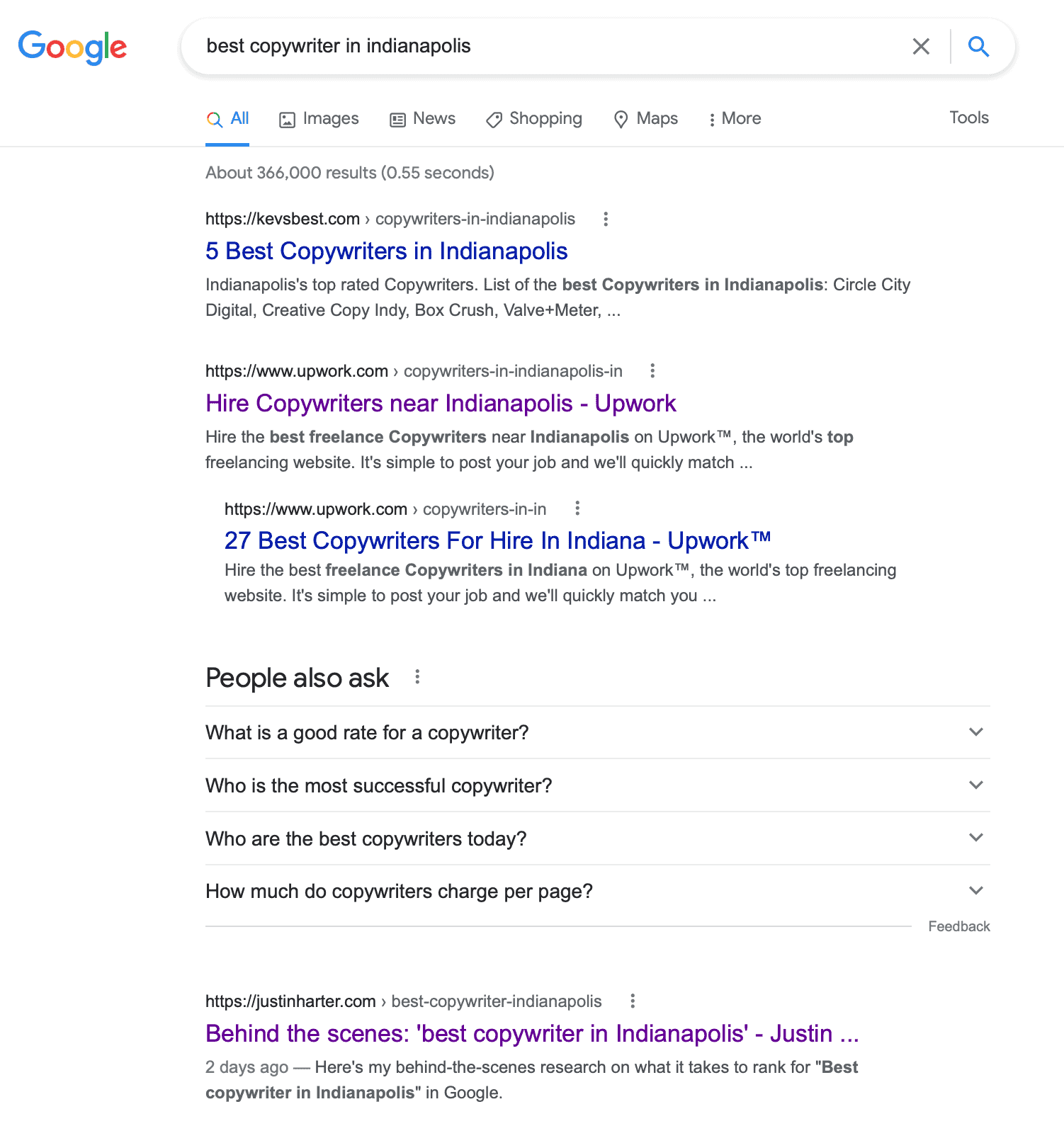Nick Heer quoted DKB in a post last night:
Reddit is currently the most popular search engine. The only people who don’t know that are the team at Reddit, who can’t be bothered to build a decent search interface. So instead we resort to using Google, and appending the word “reddit” to the end of our queries.
[…]
Why are people searching Reddit specifically? The short answer is that Google search results are clearly dying. The long answer is that most of the web has become too inauthentic to trust.
Nick added:
The bizarre relationship between Google and marketers often means the first page is full of display ads and results that are effectively ads. Big publications are all trying to do their own take on the Wirecutter for home goods, and results for software are mostly marketing disguised as informative articles.

It’s not just home goods and software. This jumped out at me this morning because two days ago I wrote a whole page about the “Best Copywriter in Indianapolis“. I wanted to target that search query and within 20 hours I made it to front page, just under UpWork and a “People Also Ask” block.
If you’d like to read how I do that, I laid out most all of the magic formulas on that page. I did something similar with “Sexiest Man in Indianapolis” a few months ago, of which I am still #1.
I feel bad about this. The spirit Google wants for search results is pages that answer people’s questions, educate them, entertain them, or otherwise give the best possible result. Is my page about being the best or sexiest person in Indy the best possible result? No, not really. Anyone who has ever met me knows that.
But in pursuit of attention and because of Google’s dominance, guys like me get to sit around and figure up all the ways to game it, or feed the beast precisely what it wants for our benefit.
Some industries are worse than others. Software isn’t great, neither are home goods, but if you’ve ever tried looking for a chiropractor, gym, or recipe, or just about any kind of educational training course, it’s nearly impossible. Those industries in particular are so vicious toward each other it’s like a cold search war. “They have a blog about knee pain, so now I’m going to have a blog about knee pain that’s twice as long.” This is also why your recipe searches have so much narrative—you can’t rank with just the recipe, and their business models require visitors to feed advertising machines.
The thing I’m sure Google is working on the most is “how do we judge the marketing material from the real, quality, authentic stuff?”
My take on writing that page about “Best copywriter” was to prove my chops, but it’s also cleverly creative (if I say so myself) precisely because I’m showing my work on that page. I could have just written up a bunch of marketing junk using all the same words, tags, headlines, density, images, links, etc. and had the same or similar result.
The thing I’m thinking of the most these days is “beyond Google”: what do I need to be doing for myself and my clients to best position us for a day when Google’s algorithm can figure out the marketing junk? I’ve tried my best over the years to avoid that stuff in favor of human-first readers, bots second. Under the belief someday—like how bloggers used to comment spam other blogs with links—it will come back to bite everyone else.
